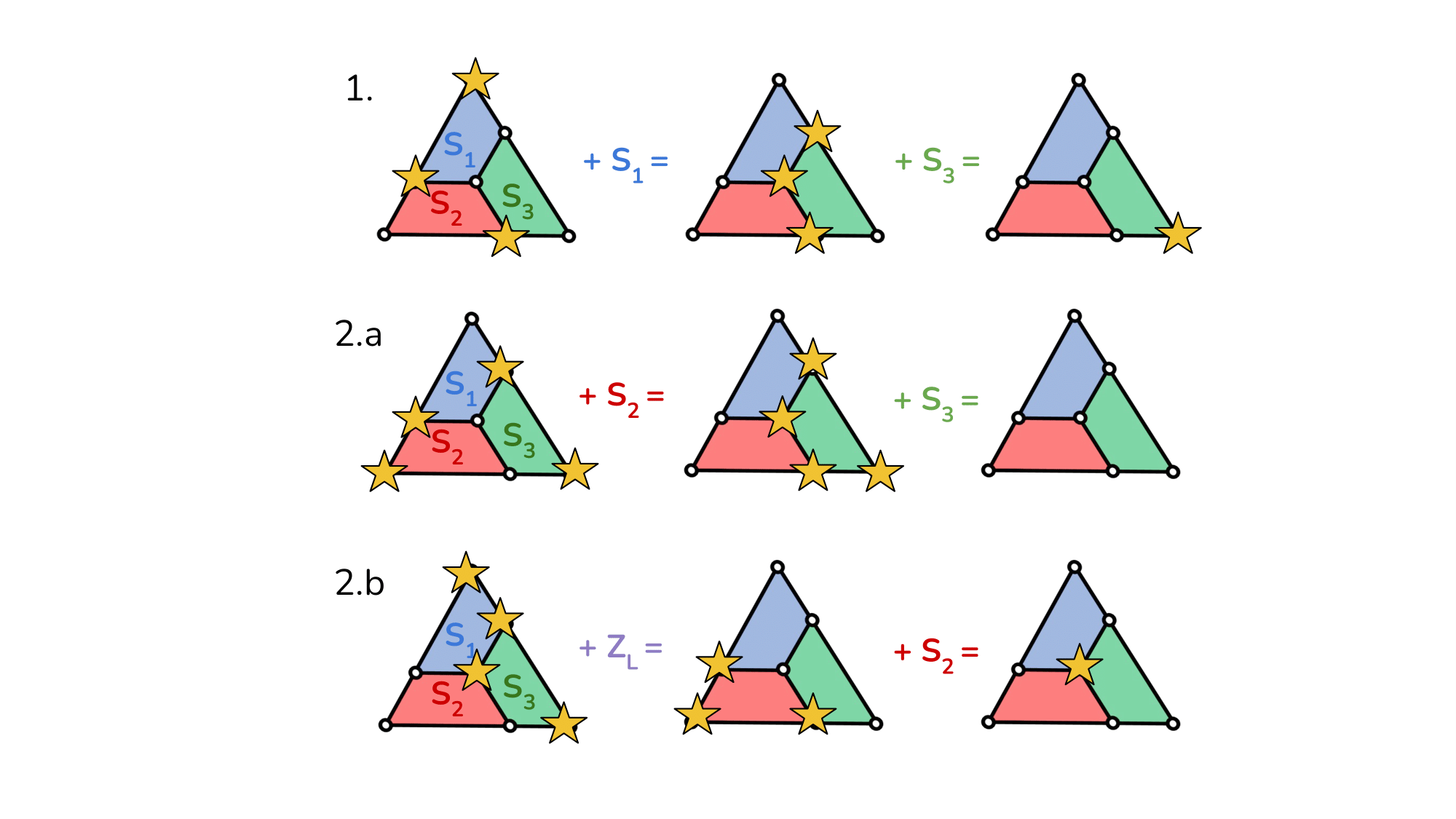Should we worry about all errors in quantum code?
Published:
No, not necessarily.
I recently encountered the following observation in my research on fault-tolerant encoding:
... no \(Z\) errors are harmful for \(|0\rangle_{\text{L}}\) encoded with the Steane code... Because of the \(Z\) stabilizer operators of \(|0\rangle_{\text{L}}\) given above, arbitrary \(Z\) errors are equivalent to no error or single-qubit \(Z\) errors. - Goto
This is a powerful insight that allows the author to overlook all \(Z\) errors to devise an efficient encoding circuit with minimal overhead. And yet, I still struggle to see where it comes from. Thankfully, a colleague of mine pointed out a simple recipe to convince myself that this is true.
Consider an arbitrary multi-qubit \(Z\) error:
- If its weight is odd, apply 4-qubit \(Z\) stabilizers until we are left with a weight-1 error.
- If its weight is even, we can either:
a. Play with 4-qubit \(Z\) stabilizers to see if it reduces to the Identity
b. Apply the logical \(Z\) operator \(Z_{\rm L} = ZZZZZZZ\) to get an odd-weight error and go back to case 1

Now the question is: does this property extend to other CSS codes as well?